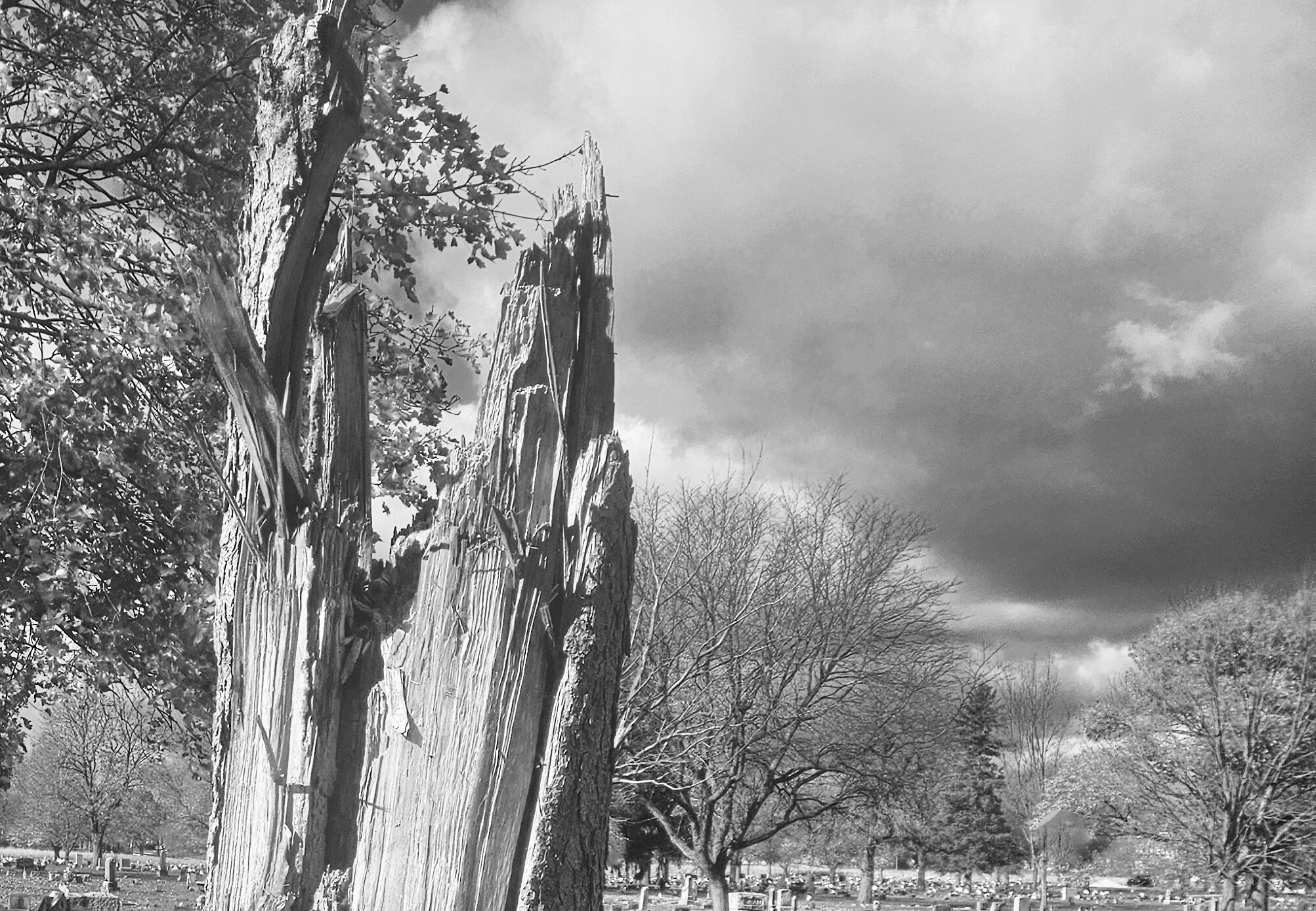
That’s when the black hole first appeared. It wasn’t a vision; it was an experience. A state of hopelessness and pain, not seen but experienced. I feared I would be lost forever if I had fallen into it. It was both the place of my greatest fear and the fear of that fear.
I pulled off the highway and called Brooke, but she didn’t answer. I couldn’t leave a voicemail, so I called her back. Then called Erin, “I’m so so sorry honey, I’m so so so sorry, but your mom died today.” My heart sank. It’s hard news for me. I’ve always wanted to protect my children from pain, but this time, I couldn’t. I was giving them pain. I had no power to protect them. I wailed at a small gas station as people walked past me to buy their energy drinks inside.
“Get home, sweetheart. I’ll cover you, just get home. And Adrian, if he can make it.” He was involved in an internship at Yale for his Ph.D. in psychology. At first, he slipped my mind; I just wanted Erin home so badly.
Sometimes, it’s hard to make sense of life. Sometimes, it’s hard to see clearly or make sense of what is happening before my eyes. Anger is useless. It just gets in the way. When you are done, your wife is still dead. And you’re driving 80 miles an hour. You’re afraid the next call will knock out Google Maps. Then you will be lost forever.
God promises peace, but I didn’t feel any.
What am I supposed to think about during the hour-and-a-half drive home? A part of me thought the world should have stopped. Stores would close down, airplanes would be grounded, and the cars on the highway would move to the side of the road so I could drive faster. “My wife died!” How could this be happening? How could she be taken from me? Was there a mistake?
A half-hour later, I pulled off the highway again and called Brooke. She had been sleeping at home. I woke her up and told her about the terrible news. She was crying. I hate to break my children’s hearts. She and her boyfriend made it to my house before I did.
I have a terrible habit of comparing myself to others, so I went to the question, “What would a guy do 100 years ago when his wife died?” If they were farmers, they wouldn’t get any time off from work and would still have to go out and milk the cows that night.
For whatever reason, an old Welsh proverb came into mind as I drove between the cars on that nameless highway. Elizabeth Elliot used it after cannibals killed her husband, the same cannibals the couple was trying to reach with the gospel. “Do the next thing.” Elizabeth used it to help her get through the trauma of losing her husband while caring for her young daughter. The idea is not to figure out the next few days or weeks but to do the next thing that needs to be done. The next thing I needed to do was to get home. Everything would happen after that. So, all I had to do was not get in a car accident.
When I finally pulled up my street, I saw several cars at the end of the road in front of my house. There was no ambulance, but there was a police car. As soon as I got out of my car, I gathered as many as I could around me in a large huddle and cried. Don was there before me. Man, I love that guy.
Someone asked me if I wanted to see “the body.” I looked at the front door of my house and was afraid. I didn’t want to go in. But how could I not go in? It’s my house. That’s my wife. I hesitated, but I knew I had to. For a moment, I was a boy and wanted someone else to do it – to do the hard, grown-up stuff I was afraid to do. But it was my wife. It was my responsibility to see her. I knew what I had to do. I couldn’t hide from this.
I went inside with Don at my wing. She was in the middle of the room, covered in a white sheet. “That’s not her,” I said. She’s with Jesus already. That’s not her.” For a brief second, I knew she was home, free of all the pain, breathing freely, running, talking with Jesus, free of pain. But all I could think of was myself—my pain, my discomfort.
Was she really dead? Did this really happen?
I remember walking over to her and kneeling down beside her body on my living room floor. I remember pounding my fist on Don’s knee (who was right next to me) as we both cried. I pulled the sheet back to see her beautiful face one last time. There was blood on her face. Blood was on her face and her chest, where, apparently, EMS tried to resuscitate her. I didn’t want to know anything more. All I cared about was that she was gone.
I kissed her forehead. It was cold and lifeless. “That’s not her. She’s gone. That’s just a shell of who she was.” I didn’t know who I was talking to when I said this. I didn’t need a response. They were words I said to the room.
My wife, almost naked, was covered by a thin white sheet as people walked in and out of the house. It seemed disrespectful to me, but I didn’t know what to do about it. I didn’t know what else I could do. She wasn’t going to move. The sheet would never fall off her. It seemed wrong, but what else could they do?
“I can’t believe she is dead,” I said, something I said a dozen or so times. I was trying to digest this fact into my brain and body. Speaking it out loud made it a little more real to me.
My beautiful wife was dead. My precious wife was dead.
I want her back. I want her with me. But God has chosen otherwise.
My theology protected me from going off the deep end. That black hole was inches away, but it didn’t overtake me. I knew where she was—she was with Jesus. That wasn’t my worry—it was the pain I was in. My selfish confusion consumed me. I didn’t know what I should do next.
I was a little boy again. I looked around the room, waiting to be told what to do. I didn’t say anything. Words didn’t seem to make sense. And I didn’t know who needed to tell me what to do next. I was a boy, lost in the mall, far away from the sight of my parents, alone, confused, scared.
